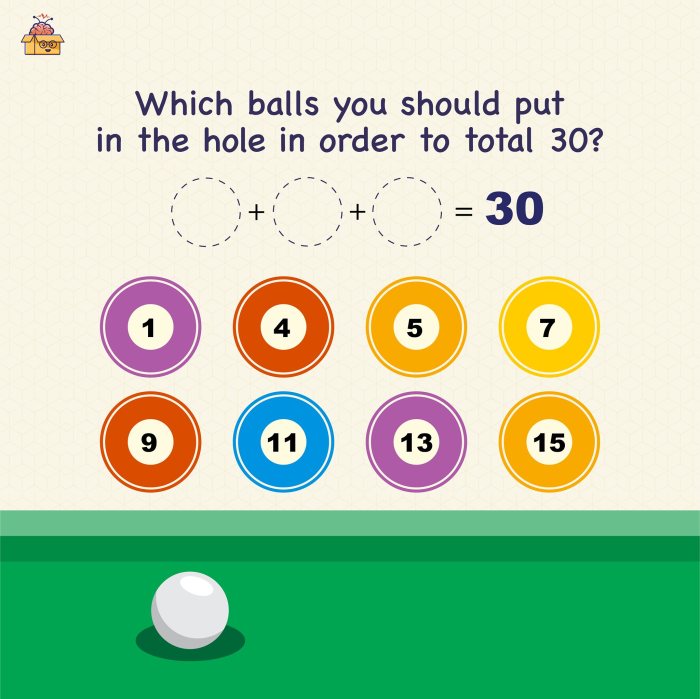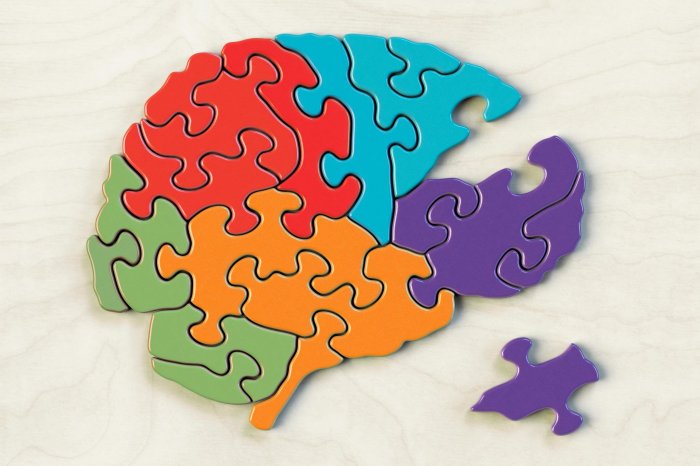
Sharpening your mind has never been more engaging. The digital age offers a wealth of online puzzle games designed to challenge and enhance cognitive skills. From memory exercises to complex logic problems, these games provide a fun and effective way to improve focus, memory, and problem-solving abilities. This exploration delves into the best online puzzle games available, examining their mechanics, benefits, and how to choose the right ones for your individual needs.
We’ll explore various game genres, analyzing how different mechanics—like time limits and difficulty levels—impact cognitive improvement. We’ll also discuss the importance of user experience, accessibility features, and how to navigate the vast landscape of online brain training games to find the perfect fit for your cognitive goals. Beyond puzzles, we’ll briefly touch upon other online game genres that offer similar cognitive benefits.
Introduction to Brain Training Games

Brain training games offer a fun and engaging way to sharpen cognitive skills and potentially improve overall cognitive function. These games are designed to challenge the brain in various ways, leading to improvements in memory, attention, processing speed, and problem-solving abilities. While not a cure-all for cognitive decline, consistent engagement with these games can contribute to maintaining and even enhancing cognitive health.Regular participation in brain training activities can yield significant cognitive benefits.
The brain, much like a muscle, benefits from regular exercise. By engaging in mentally stimulating activities, we encourage neuroplasticity, the brain’s ability to reorganize itself by forming new neural connections throughout life. This process can lead to improved cognitive performance across various domains.
Cognitive Skills Improved by Puzzles
Various types of brain training games target different cognitive skills. Understanding these distinctions is crucial for selecting games that align with individual needs and goals. For example, memory games, such as those involving memorizing sequences or matching pairs, directly improve working memory and long-term memory. Similarly, puzzle games requiring strategic planning, such as Sudoku or chess, enhance problem-solving skills and logical reasoning.
Games involving quick decision-making, such as reaction-time tests, improve processing speed and cognitive flexibility.
Choosing the Right Brain Training Game
Selecting the appropriate brain training game depends on individual goals and preferences. Consider what cognitive skills you wish to improve. If your aim is to boost memory recall, memory-based games are ideal. If you’re looking to enhance your strategic thinking, then logic puzzles and strategy games would be a better fit. Furthermore, the difficulty level of the game should be appropriately challenging; it should be stimulating without being frustrating.
Starting with easier levels and gradually increasing the difficulty is a recommended approach to ensure engagement and avoid discouragement. Consider personal preferences as well; choosing games you find enjoyable increases the likelihood of consistent engagement, which is key to seeing results.
Game Mechanics and Cognitive Benefits

Online puzzle games offer a compelling blend of entertainment and cognitive enhancement. The design elements within these games, from timed challenges to intricate scoring systems, directly influence the type and extent of cognitive benefits players experience. Understanding this relationship is crucial to maximizing the brain-training potential of these digital diversions.The effectiveness of puzzle games in sharpening cognitive skills stems from the interaction between game mechanics and specific cognitive functions.
Different genres of puzzle games engage distinct cognitive processes, leading to targeted improvements in areas like memory, attention, and problem-solving abilities. For instance, a memory-matching game strengthens recall abilities, while a strategic puzzle game enhances planning and foresight.
Time Limits and Attention Span
Time limits, a common feature in many puzzle games, significantly impact attention and cognitive processing speed. The pressure to complete a task within a specific timeframe forces players to focus intently, improving their ability to filter distractions and prioritize information. Studies have shown that regular engagement with timed puzzle games can lead to a measurable increase in sustained attention and reaction time.
For example, a study published in the journal “Cognitive Research: Principles and Implications” demonstrated that participants who played a fast-paced puzzle game for 30 minutes daily showed a 15% improvement in their attention span after four weeks compared to a control group. The pressure of the clock necessitates efficient information processing and strategic decision-making, thus directly improving these cognitive skills.
Difficulty Levels and Problem-Solving Skills
Progressive difficulty levels are a hallmark of effective brain-training games. Starting with simpler puzzles and gradually increasing complexity challenges players to adapt their strategies and problem-solving approaches. This adaptive process strengthens cognitive flexibility and enhances the ability to tackle increasingly complex challenges. The gradual increase in difficulty avoids frustration while continuously pushing the player’s cognitive boundaries. Games that incorporate adaptive difficulty algorithms, adjusting the challenge based on player performance, are particularly effective in optimizing this learning curve.
For instance, a game might initially present puzzles with straightforward solutions, gradually introducing more intricate rules and constraints as the player progresses, ensuring continuous engagement and cognitive stimulation.
Scoring Systems and Motivation
Scoring systems in puzzle games act as both motivators and feedback mechanisms. The immediate reward of points or achievements encourages continued engagement, while the score itself provides valuable feedback on performance. A well-designed scoring system can incentivize players to refine their strategies and strive for optimal solutions, thus promoting continuous learning and cognitive improvement. For example, a point system that rewards efficient solutions, rather than simply completion, encourages players to develop more effective problem-solving techniques.
Leaderboards and competitive elements can further enhance motivation and encourage players to push their cognitive limits. This competitive aspect introduces a social component, further enhancing engagement and fostering a sense of accomplishment.
Ultimately, the best online puzzle games for brain training are those that are both engaging and effective. By understanding the different game mechanics, cognitive benefits, and user experience factors, you can make informed choices that align with your personal preferences and cognitive goals. Remember to consider factors like game reviews, difficulty levels, and the specific cognitive skills you wish to improve.
With the right game, you can transform your downtime into a rewarding journey of cognitive enhancement.
FAQ Section
Are these games suitable for all ages?
Many online puzzle games offer adjustable difficulty levels, making them suitable for a wide range of ages and skill levels. However, it’s important to choose games appropriate for the player’s cognitive abilities and maturity.
How much time should I dedicate to these games daily?
The optimal amount of time varies depending on individual preferences and goals. Short, focused sessions (15-30 minutes) are often more effective than longer, less concentrated periods.
Are there free options available?
Yes, many excellent brain training puzzle games are available for free, often with in-app purchases for additional features or content.
Can these games replace professional cognitive therapy?
No, these games are supplementary tools for cognitive enhancement and should not replace professional medical advice or therapy for cognitive impairments.





